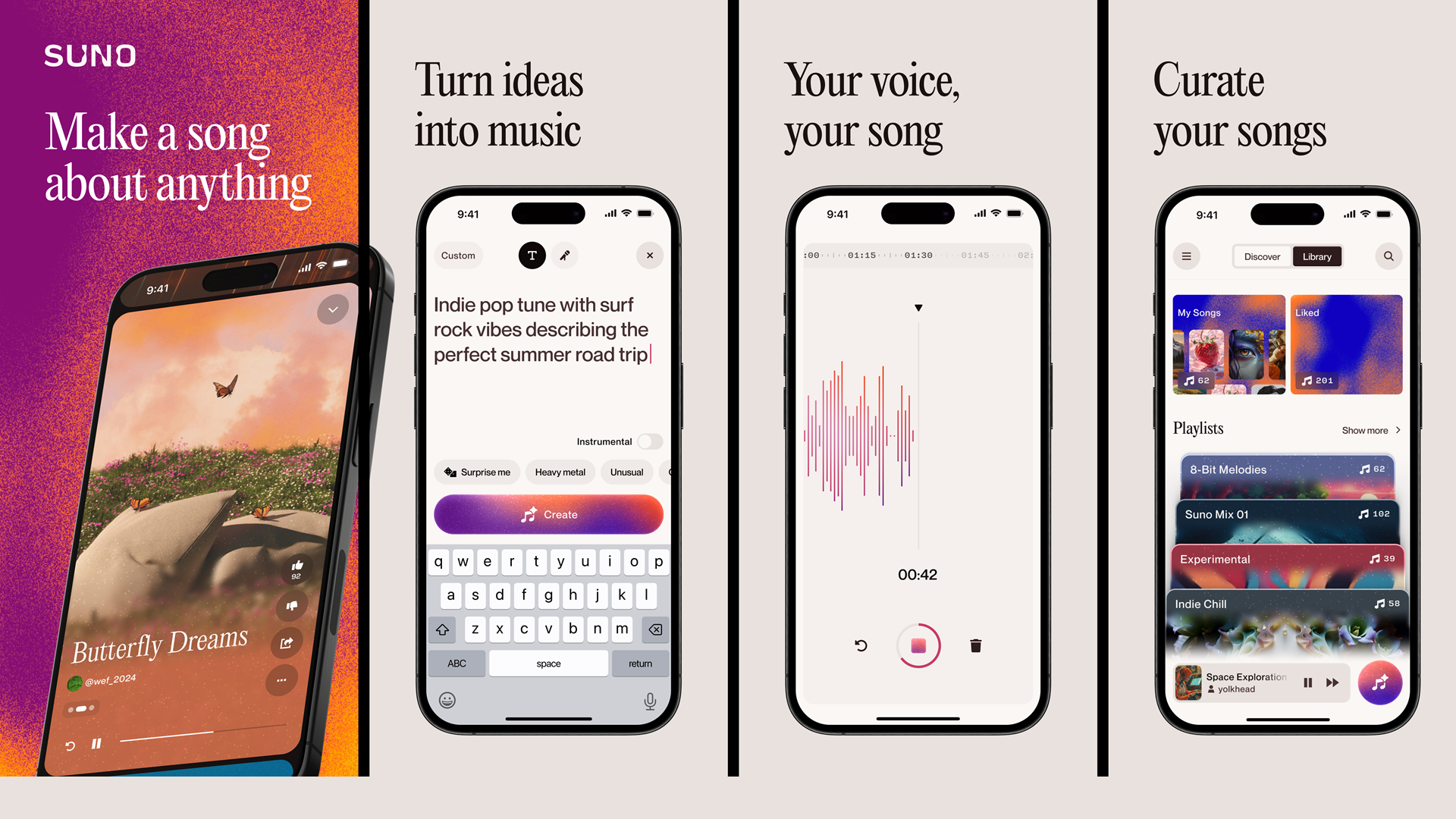
Suno and its artificial intelligence-fueled music composition is now available as a mobile app on iOS in the U.S. The app translates Suno’s AI music creation and sharing tools to smartphones as the company attempts to stake a claim for the most successful AI music developer.
The Suno mobile app essentially carries over what the Suno platform offers users but with an interface better suited to handheld hardware. Users can describe a song and suggest lyrics, and the AI model will create an audio track that matches. The app can also link to your phone’s microphone to record audio around you and process those sounds, whether birdsong or conversations, into music. The music produced with the app can also be shared either directly with your friends or through the app, where you can also discover and curate music made by others employing Suno.
“We prize originality, both in how we build our product and in how people use it. We’re excited that for the first time ever, these joys can be experienced from your phone! With version one of our mobile app, you can explore new musical experiences wherever you go,” Suno co-founder Mikey Shulman explained in a blog post. “Suno is built for new music, new uses, and new musicians. We’re excited to be in your pocket whenever the moment strikes, and to provide a rich set of tools for capturing it.”
Legally sound
Suno claims that more than 12 million people have already tried making music with its platform. The launch of the mobile app (iOS only, for now) will likely expand this community even further. Suno already scored a deal with Microsoft to offer a plugin for Suno's text-to-music tool for Microsoft Copilot. The Suno app is free to download, with 50 credits per day, which translates to 10 short audio clips. For more extensive use, there are Pro and Premier plans.
One unanswered question is whether the app and Suno in general, will be around for very long. Suno and fellow AI music-maker Udio are facing formidable lawsuits filed by the Recording Industry Association of America (RIAA) and several music labels. The lawsuits claim the AI startups are infringing copyright because of how the models are trained, raising larger questions of whether the songs produced by Suno represent original creations or are breaching intellectual property rights.







